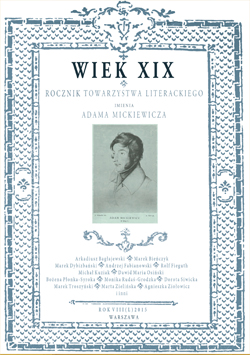Cela jako własny pokój. Relacje więźniarek politycznych z XIX i początku XX wieku
A Prison Cell as One’s Own Room. Female Political Prisoners’ Testimonies of Nineteenth and the Beginning of Twentieth Centuries
Author(s): Monika Rudaś-GrodzkaSubject(s): Gender Studies, Cultural history, Gender history, 19th Century
Published by: Towarzystwo Literackie im. Adama Mickiewicza
Keywords: prisons; women’s memoirs; letters; Narcyza Żmichowska; Halina Krahelska; Zofia Dzierżyńska; Zofia Kirkor-Kiedroniowa;
Summary/Abstract: Prisons constituted places where the female subjectivity crystallized in the nineteenth and early twentieth century. Imprisoned women were developing their feminist views, undergoing inner transformation, were engaged in spiritual work, and prepared themselves for future political activity. Women’s memoirs, letters, and other first-person narratives attest to that. In the case of female political activists, their imprisonment was perceived as an almost necessary stage in their spiritual and public development. The process of formulating female subjectivity was parallel to the process of liberating oneself from family networks and social conventions. Women had no rights in the nineteenth century. They lived family lives and frequently had no opportunity to confront themselves as individuals. In prison a woman was given a chance to gain an understanding of her “self.” Solitude, a limited but private space of the prison cell, and ample time, all constituted emancipatory factors. An important element of women’s prison experience was becoming politically on cell, and ample time, all constituted emancipatory factors. An important element of women’s prison experience was becoming politically conscious. For many women the years spent in prison were the most important time of their entire lives. For example, Narcyza Żmichowska, Halina Krahelska, Zofia Dzierżyńska, and Zofia Kirkor-Kiedroniowa had undergone the process of a symbolic liberation of self from an external system of control, which was then supplanted by an internal mechanism of self-discipline. These women subverted the design of the system of power that had placed them in prison: they worked out rules and regulations akin to those that governed daily practices of nuns and monks in convents, thereby enabling a transformation of spiritual life.
Journal: Wiek XIX. Rocznik Towarzystwa Literackiego im. Adama Mickiewicza
- Issue Year: L/2015
- Issue No: 1
- Page Range: 157-178
- Page Count: 22
- Language: Polish

